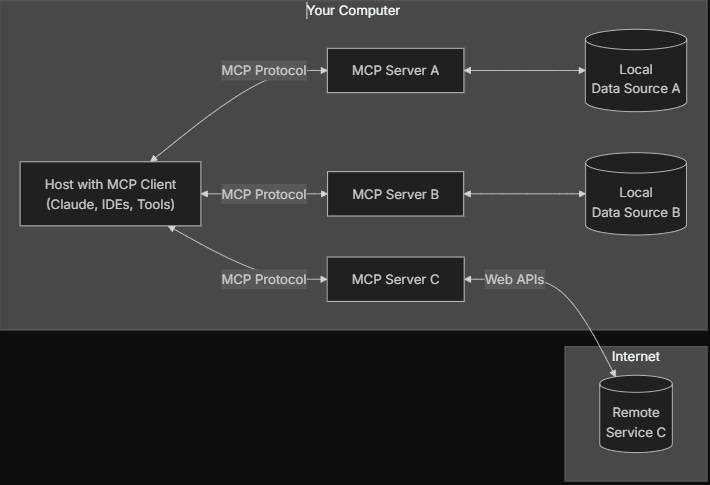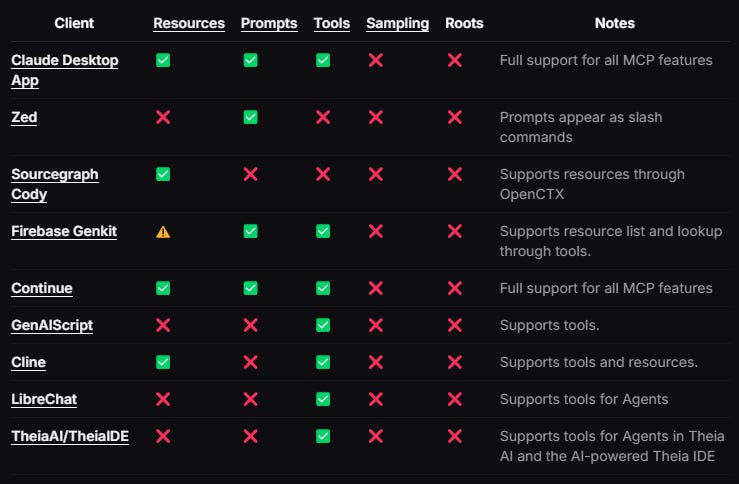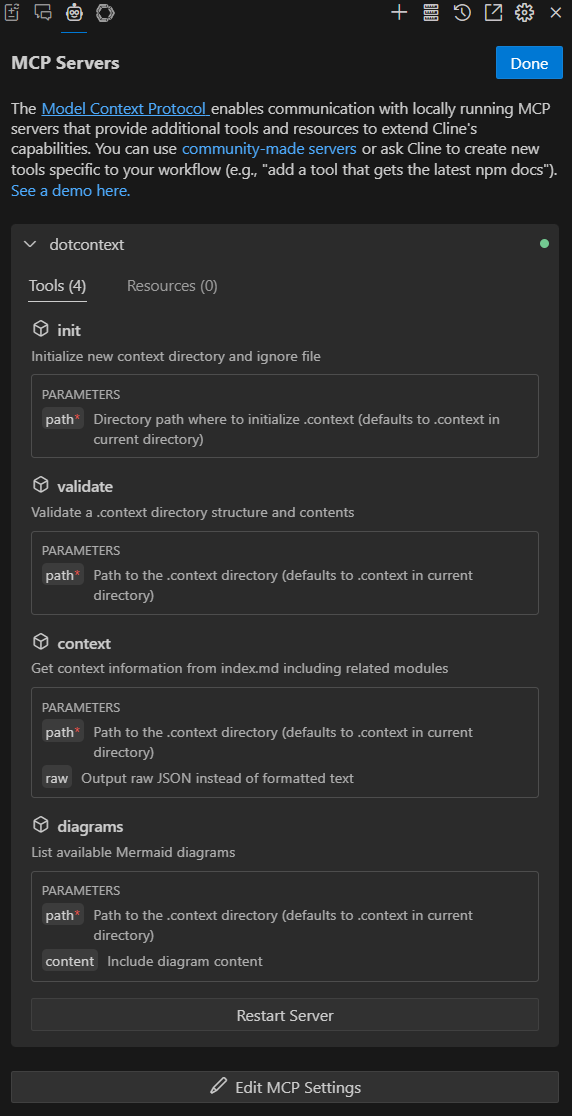Model Context Protocol: The Web Browser Era of AI Tools 🚀
2025 is the Year of MCP
Remember the early days of the web browser wars? When Netscape Navigator and Internet Explorer were competing to define how we'd access information online? The AI world is experiencing a similar transformation with the Model Context Protocol (MCP). Just as web browsers standardized how we interact with the internet, MCP is establishing a universal protocol for AI tools and services.
When your AI assistant supports MCP, you’re not limited to just the tools and resources your AI vendor provides.
Publishing an MCP server turns your service into a universal AI companion. Any MCP-compatible AI can now naturally interact with your platform—no custom integrations needed.
Beyond Function Calling: A New Protocol Era
While ChatGPT and other AI platforms offer built-in function calling, MCP takes a fundamentally different approach. Instead of relying on proprietary tool implementations, MCP creates an open standard for tool integration—think HTTP for AI tools. This means your AI assistants can seamlessly connect with any MCP-compatible tool, regardless of the platform.
The Power of Comprehensive AI Interactions
At its heart, MCP revolutionizes how AI interacts with data and services. Through smart resource management, AI assistants can efficiently process large datasets through automatic pagination, ensuring they never get overwhelmed by data volume. This isn't just about reading data—MCP enables full Create, Read, Update, and Delete (CRUD) operations, allowing AI to maintain state and manage information just like traditional applications.
The MCP ecosystem is taking shape through a growing collection of reference implementations and real-world applications. Reference servers demonstrate the protocol's potential across diverse use cases:
Anthropic's reference implementations show us what's possible: The PostgreSQL server enables secure, read-only database exploration, while the Puppeteer server facilitates browser automation and web interaction. A sophisticated Memory server implements knowledge graph-based persistence, and the Git server handles repository management and search. Even seemingly simple tasks get robust handling - the Time server manages timezone conversions with precision.
Enterprise adoption is growing steadily, with major players contributing robust implementations. Cloudflare has developed a server for managing their developer platform resources - Workers, KV, R2, and D1. Axiom enables natural language log analysis, while Neo4j brings graph database capabilities to the protocol. Browserbase offers cloud-based browser automation, and E2B provides secure sandbox environments for code execution.
The client landscape is particularly exciting, with Cline emerging as the current frontrunner in MCP integration. Developed with a focus on reliability and practical utility, Cline demonstrates robust handling of both resources and tools. Early adopters have successfully integrated Cline with various MCP servers, including custom implementations using the new dotcontext specification.
Other clients are at various stages of development and testing. The Claude Desktop App showcases comprehensive MCP feature support in principle, though real-world integration can be challenging. Firebase Genkit demonstrates promising resource listing and tool-based lookup capabilities, while Zed takes an interesting approach with prompt-focused implementation. While Continue shows potential, current users report mixed success with MCP server integration.
As the protocol matures, we're seeing ongoing development in crucial areas like error handling, state management, and cross-tool coordination. Each implementation helps refine best practices, with Cline's success offering valuable insights into effective MCP integration patterns. Here’s an example of what early MCP client integrations look like outside of the Claude desktop app, which has a similar list of tools that have been configured for that conversation.
Breaking Free from Platform Lock-in
MCP liberates AI tools from platform dependencies. You're no longer confined to specific AI platforms or limited by proprietary implementations. This open approach means you can build tools once and use them anywhere, maintaining full control over your tools and data while integrating with any MCP-compatible AI assistant.
The Growing Ecosystem
The MCP ecosystem is flourishing with innovative implementations. Official partners like Axiom, Browserbase, and Cloudflare are pushing the boundaries of what's possible. Specialized servers handle everything from time conversion to knowledge graph-based memory systems, while community innovations are expanding into areas like home automation and real-time flight tracking.
Happy New Year: 2025 is the Year of MCP! 🎉
As we kick off 2025, MCP is poised for explosive growth. The roadmap reveals game-changing developments that will revolutionize AI tool integration. Remote connection support will soon enable AI tools to connect seamlessly across the internet with robust authentication and service discovery—imagine an App Store for AI capabilities!
The protocol is evolving to support complex agent workflows, enabling hierarchical systems of AI agents to work together and share information in real-time. We're seeing support expand for audio and video interactions, standardized packaging, and enhanced security through sandboxing.
Looking to the Future
Just as web browsers evolved from simple document viewers into powerful application platforms, MCP is becoming the backbone of AI tool integration. The protocol represents more than just a way to connect AI with tools—it's a fundamental shift in how we think about AI capabilities.
By standardizing how AI interacts with external tools and resources, MCP is democratizing AI tool development and creating a universal language for AI-tool interaction. This foundation will support the next generation of AI applications, making 2025 the year MCP becomes a household name in tech circles.
Whether you're an AI developer, tool creator, or enthusiast, you're witnessing the birth of a new standard that will shape how AI interacts with the digital world for years to come. The future of AI tools is open, interoperable, and more exciting than ever! 🚀
Note: The Model Context Protocol ecosystem is growing rapidly, with new tools and capabilities being added regularly. Keep an eye on the official repositories and community discussions to stay updated with the latest developments.





